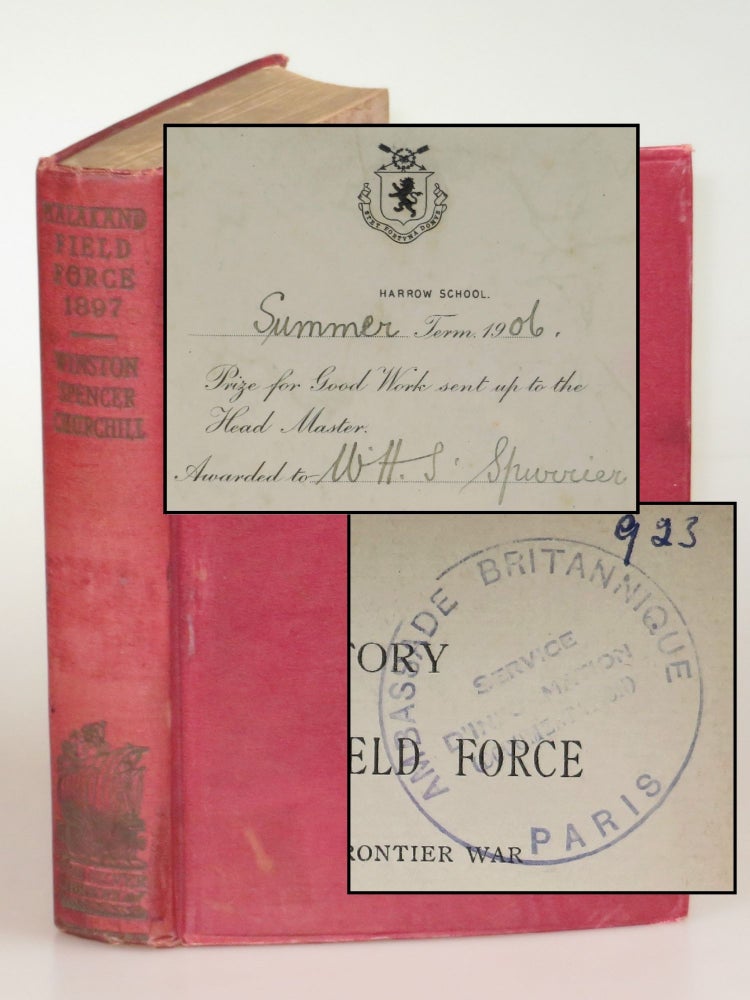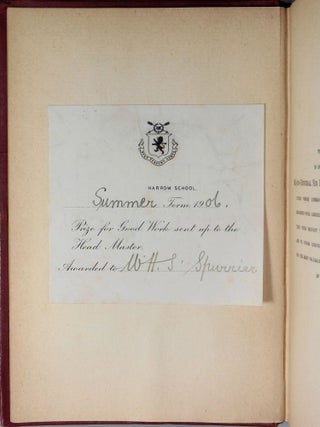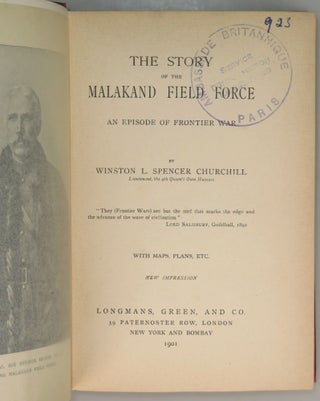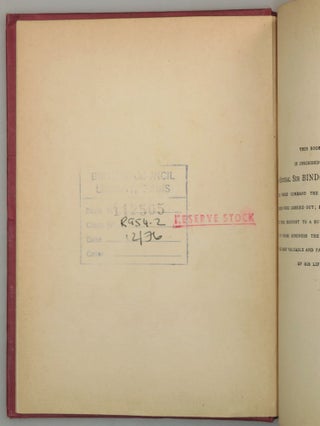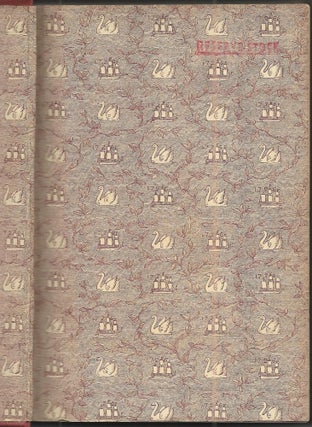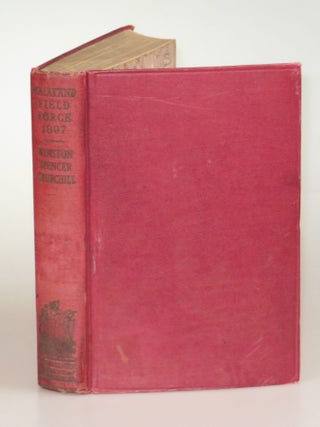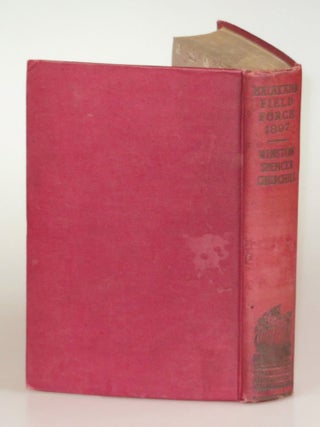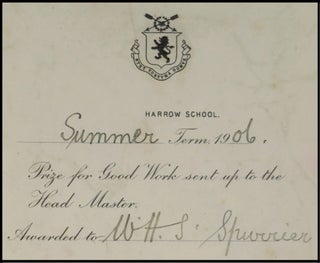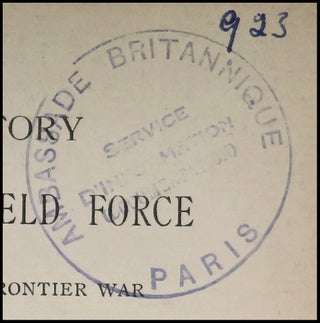The Story of the Malakand Field Force: An Episode of Frontier War, a scarce binding variant with interesting provenance, including both the author's alma mater and the British embassy in Paris
London: Longmans, Green, and Co., 1901. Second edition, second printing. Hardcover. This second and final printing of the Silver Library edition of Churchill's first book is notable for being a scarce binding variant in superior condition with interesting provenance, including both Churchill's alma mater and the British embassy in Paris.
This Silver Library edition was the first to incorporate the author's corrections in the text, making this an important and highly collectable edition. Unfortunately, the maroon boards proved highly susceptible to fading and wear, the paper easily browned and became brittle, and the binding often cracked. Here is the second and final printing of the Silver Library edition. Of only 1,000 copies of this printing, just 337 were recorded as sold, so they are scarce. This particular copy is scarcer still. Bibliographer Ronald Cohen (Vol. I, A1.3.c, p.22) and Richard Langworth (p.22) note a binding variant, bound in a smooth, medium red cloth distinctly different from the textured maroon cloth common to the Silver Library edition. This variant is slightly smaller than the standard Silver Library binding as well, with slightly trimmed text block, and the spine print and decoration in black instead of gilt. This particular copy of the variant binding differs further, featuring the distinctive swan and ship endpapers typically found only on first printing copies; moreover, the endpapers have a pronounced red hue we have never encountered, rather than the tan appearance of customary Silver Library edition endpapers.
Condition is very good plus. The binding remains tight, with minor wear to extremities. The spine shows only slight color shift and the faint outline of what may have once been a sticker above the publisher's ship device. The contents are particularly bright and well preserved for a Silver Library edition, with only modest age-toning to the page edges. All maps are present and pristine, as is the frontispiece and tissue guard. This copy also boasts interesting provenance. The title page verso bears a prize certificate from Churchill's Alma Mater, Harrow School, filled out in pencil by hand for the "Summer" term of 1906, and awarded as a "Prize for Good Work sent up to the Head Master" to "W. H. S. Spurrier". In the spring of 1888, thirteen-year-old Winston Churchill was sent to Harrow, an independent boys boarding school that dates to the 16th century. Churchill remained at Harrow until 1892 when he left for the Royal Military College at Sandhurst.
On the title page itself is circular ink stamp of the "AMBASSADE BRITANNIQUE PARIS" with the words "SERVICE D'INFORMATION (DOCUMENTATION)" within and the numbers "923" inked directly above the stamp. The only other previous ownership marks we find are the words "RESERVE STOCK" stamped in red ink on the first free endpaper and a tiny "Times Book Club" of London sticker affixed to the lower rear pastedown.
The Story of the Malakand Field Force was based on Churchill's exploits with Sir Bindon Blood's expedition on the Northwest Frontier of India in 1897. While Churchill had previously applied his pen as a published correspondent, this was his first book-length work and he clearly labored over it: "I have discovered a great power of application which I did not think I possessed. For two months I have worked not less than five hours a day." The young Churchill was motivated by a combination of pique and ambition. He was vexed that his Daily Telegraph columns were to be published unsigned. Publication of the first edition of 1898 was arranged by Churchill's uncle while the author was still in India, resulting in numerous spelling and detail errors. Churchill was incensed by the errors and acted with haste to address them. In part because of the errors in the first edition which so vexed Churchill, the publisher issued this second, Silver Library edition less than a year after the first in January 1899.
Reference: Cohen A1.3.c, Woods/ICS A1(ba.2), Langworth p.22. Item #006407
Price: $1,500.00

